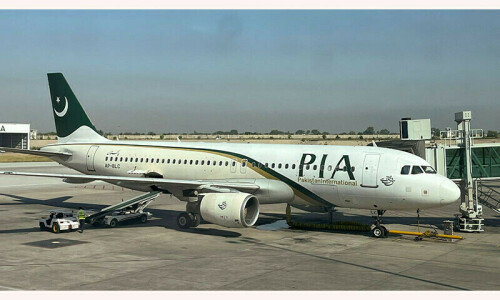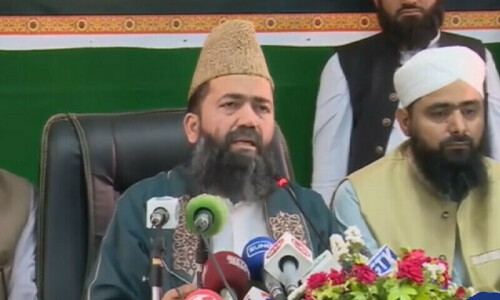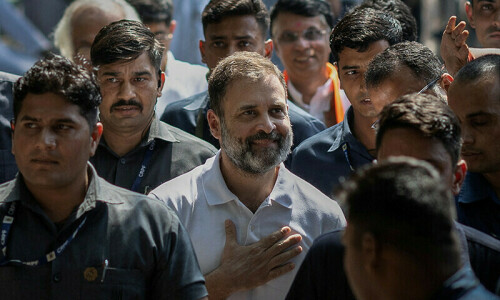WASHINGTON: The United States has spent billions in aid to Egypt, but the education of thousands of officers at elite American academies is equally vital to the close military ties between Washington and Cairo.
As Egypt convulses with deadly political tumult, such calculated, decades-long nurturing of army relations emerges as a key element as Washington engages a vital Mideast ally in the aftermath of the Egyptian military's ouster of president Mohamed Morsi last week.Since 1979, Egypt has been the largest recipient of US bilateral aid after Israel, with $68 billion in American support, according to the Congressional Research Service (CRS).
Egypt anchors a peace accord with the neighbouring Jewish state, serves as the focal point of US policy in the Arab world, and ensures right of passage for US Navy vessels through the strategic Suez Canal.
Its reward is overwhelmingly military: President Barack Obama's administration secured $1.3 billion in US aid to Egypt's armed forces in 2013, and $250 million in economic assistance. US law requires the government freeze all aid to a country in the event of a coup, but Obama has resisted labelling Morsi's ouster as such, and on Monday the White House announced it would “not be in our best interests” to immediately cut off aid to such a vital regional ally.
Such is the importance of US support that it covers about 80 per cent of Egyptian army materiel and nearly a third of its budget, according to CRS.
US M1A1 Abrams tanks are produced under license in Egypt, which has contracted for 1,200 of the battle vehicles and more than 220 F-16 fighter jets since 1980.
Every two years the two armies organise bilateral exercise “Bright Star.” The next war games are set for September, and despite Egypt's precarious state they remain on the schedule, according to the Pentagon. But another lever Washington uses to maintain its close diplomatic engagement is the molding of the Arab state's officers in America—and one of the beneficiaries has been Egypt's current army chief himself, General Abdel Fattah al-Sisi.
Sisi and Egyptian Army Chief of Staff Sedki Sobhi spent a year at the prestigious US Army War College in the small Pennsylvania town of Carlisle in 2006 and 2004, respectively.
“The two main military guys in Egypt right now both have reasonably fresh ties to the US military,” said Stephen Gerras, who taught a critical thinking course to Sisi at the college and served as his faculty and thesis advisor. “He's very serious, he's very smart, very pious and he's very warm,” Gerras said.
Officers like Sisi and Sobhi “get a real experience of American culture and they get exposed to the American military way of thinking,” he added. “Those relationships typically persist.” In broad numbers, too. Between 2000 and 2009, more than 11,500 officers—some 2.5pc of today's entire Egyptian military—crossed the Atlantic to study and train in US schools.
The development of such personal contacts “can enhance bilateral military cooperation, especially when regional crises arise,” said Gregory Aftandilian of the Army War College's Strategic Studies Institute.
That was apparent in recent days, when the Pentagon acknowledged that Secretary of Defence Chuck Hagel had “lengthy and very candid conversations” by phone with Sisi no less than four times between Friday and Sunday. But despite the closeness between military figures, Washington “made a hash of its Egypt policy,” according to Michele Dunne, director of the Atlantic Council's Rafik Hariri Centre for the Middle East.
“US officials were late in seeing the crisis coming, and their advice—much of it out of step with events—was ignored by all sides,” Dunne wrote in The Washington Post.
The most senior US military figure, General Martin Dempsey, acknowledged to CNN that he, like Hagel, has been in repeated contact with Egyptian officers, but “I'm not in the know about exactly what they're going to do.” He said he sought to “encourage them... not to take sides in any particular issue, and to ensure that they were a part of the resolution of this—but in their proper role as a military, which is to ensure stability but not try to influence the outcome.”—AFP









































Dear visitor, the comments section is undergoing an overhaul and will return soon.